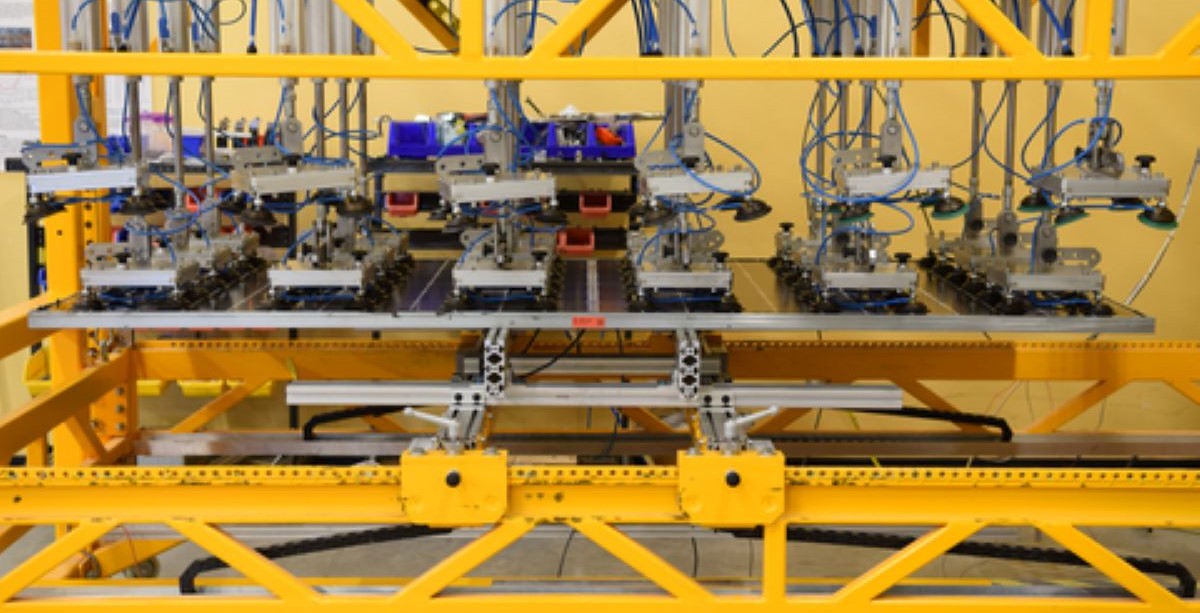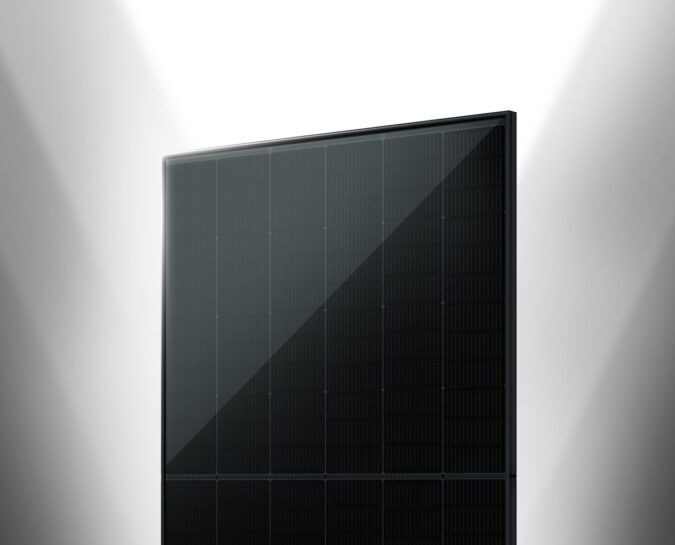From pv magazine USA
Origami Solar has announced partnerships with three US steel fabricators who will domestically produce steel solar module frames in Ohio and Texas. The company expects to ship steel frames to customers in the first quarter of 2025. By producing regionally, frames will reach module manufacturers in one to two days.
“America has one of the world’s strongest steel industries” said Origami Solar CEO Gregg Patterson. “We have the energy efficient steel mills and the world-class fabricators that can produce every solar frame America will ever need.”
Origami Solar, founded in 2019 and based in Oregon, is a pv magazine 2023 award winner for manufacturing. The company produces patented, steel solar module frames that are said to lower cost and improve module performance. It reports that the frames are made of “green” recycled steel, thereby reducing greenhouse gases by up to 93%, representing a reduction of 80 kg per module or 200 metric tons per MW.
A recent report by Wood Mackenzie and Origami Solar notes that while the United States is working toward building up its domestic module manufacturing, thanks for the US Inflation Reduction Act (IRA), a less well-known problem is US dependence on aluminum module frames. The majority of these are currently imported from East and Southeast Asia, and the report says that they are all made from carbon-intensive aluminum.
Origami Solar sees an opportunity to supply module manufacturers in the US market who are switching from imported aluminum frames to domestically made steel frames. Its use of recycled steel from suppliers in the United States and Europe in its frames give it a competitive edge when it comes to greenhouse gas scoring as assessed by Boundless Impact
Patterson said that by having regional fabrication centers in the United States, customers will avoid “shipping issues, labor strife, or impoundments delaying the arrival of the frames they need.” He added that by procuring domestically produced steel frames customers won’t have the worry of “geopolitical tensions” or “ever-increasing tariffs.” In light of recent news about fragile solar panels, he noted that steel frames may alleviate the risk of frames failing to support ever-larger solar panels.
Switching to domestically produced products across the solar supply chain has the further benefit of supporting good-paying jobs.
“Thanks to our partnership with Origami, we were able to expand our investments in the solar industry, keep our Benton, Arkansas facility open, keep our current employees hard at work and expand to up to 70 additional skilled workers over the next three years,” said Rocky Christenberry, Priefert’s executive vice president.
This content is protected by copyright and may not be reused. If you want to cooperate with us and would like to reuse some of our content, please contact: editors@pv-magazine.com.




By submitting this form you agree to pv magazine using your data for the purposes of publishing your comment.
Your personal data will only be disclosed or otherwise transmitted to third parties for the purposes of spam filtering or if this is necessary for technical maintenance of the website. Any other transfer to third parties will not take place unless this is justified on the basis of applicable data protection regulations or if pv magazine is legally obliged to do so.
You may revoke this consent at any time with effect for the future, in which case your personal data will be deleted immediately. Otherwise, your data will be deleted if pv magazine has processed your request or the purpose of data storage is fulfilled.
Further information on data privacy can be found in our Data Protection Policy.